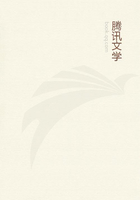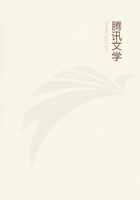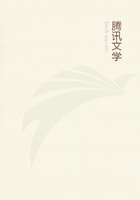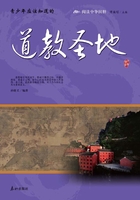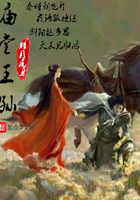Also, at Galesburgh, I said something in regard to those Springfield resolutions that Judge Douglas had attempted to use upon me at Ottawa, and commented at some length upon the fact that they were, as presented, not genuine. Judge Douglas in his reply to me seemed to be somewhat exasperated. He said he would never have believed that Abraham Lincoln, as he kindly called me, would have attempted such a thing as I had attempted upon that occasion; and among other expressions which he used toward me, was that I dared to say forgery, that I had dared to say forgery [turning to Judge Douglas]. Yes, Judge, I did dare to say forgery. But in this political canvass the Judge ought to remember that I was not the first who dared to say forgery. At Jacksonville, Judge Douglas made a speech in answer to something said by Judge Trumbull, and at the close of what he said upon that subject, he dared to say that Trumbull had forged his evidence. He said, too, that he should not concern himself with Trumbull any more, but thereafter he should hold Lincoln responsible for the slanders upon him. When I met him at Charleston after that, although I think that I should not have noticed the subject if he had not said he would hold me responsible for it, I spread out before him the statements of the evidence that Judge Trumbull had used, and I asked Judge Douglas, piece by piece, to put his finger upon one piece of all that evidence that he would say was a forgery! When I went through with each and every piece, Judge Douglas did not dare then to say that any piece of it was a forgery. So it seems that there are some things that Judge Douglas dares to do, and some that he dares not to do.
[A voice: It is the same thing with you.]
Yes, sir, it is the same thing with me. I do dare to say forgery when it is true, and don't dare to say forgery when it is false. Now I will say here to this audience and to Judge Douglas I have not dared to say he committed a forgery, and I never shall until I know it; but I did dare to say--just to suggest to the Judge--that a forgery had been committed, which by his own showing had been traced to him and two of his friends. I dared to suggest to him that he had expressly promised in one of his public speeches to investigate that matter, and I dared to suggest to him that there was an implied promise that when he investigated it he would make known the result.
I dared to suggest to the Judge that he could not expect to be quite clear of suspicion of that fraud, for since the time that promise was made he had been with those friends, and had not kept his promise in regard to the investigation and the report upon it. I am not a very daring man, but I dared that much, Judge, and I am not much scared about it yet. When the Judge says he would n't have believed of Abraham Lincoln that he would have made such an attempt as that he reminds me of the fact that he entered upon this canvass with the purpose to treat me courteously; that touched me somewhat. It sets me to thinking. I was aware, when it was first agreed that Judge Douglas and I were to have these seven joint discussions, that they were the successive acts of a drama, perhaps I should say, to be enacted, not merely in the face of audiences like this, but in the face of the nation, and to some extent, by my relation to him, and not from anything in myself, in the face of the world; and I am anxious that they should be conducted with dignity and in the good temper which would be befitting the vast audiences before which it was conducted. But when Judge Douglas got home from Washington and made his first speech in Chicago, the evening afterward I made some sort of a reply to it. His second speech was made at Bloomington, in which he commented upon my speech at Chicago and said that I had used language ingeniously contrived to conceal my intentions, or words to that effect. Now, I understand that this is an imputation upon my veracity and my candor. I do not know what the Judge understood by it, but in our first discussion, at Ottawa, he led off by charging a bargain, somewhat corrupt in its character, upon Trumbull and myself,--that we had entered into a bargain, one of the terms of which was that Trumbull was to Abolitionize the old Democratic party, and I (Lincoln) was to Abolitionize the old Whig party; I pretending to be as good an old-line Whig as ever. Judge Douglas may not understand that he implicated my truthfulness and my honor when he said I was doing one thing and pretending another; and I misunderstood him if he thought he was treating me in a dignified way, as a man of honor and truth, as he now claims he was disposed to treat me. Even after that time, at Galesburgh, when he brings forward an extract from a speech made at Chicago and an extract from a speech made at Charleston, to prove that I was trying to play a double part, that I was trying to cheat the public, and get votes upon one set of principles at one place, and upon another set of principles at another place,--I do not understand but what he impeaches my honor, my veracity, and my candor; and because he does this, I do not understand that I am bound, if I see a truthful ground for it, to keep my hands off of him. As soon as I learned that Judge Douglas was disposed to treat me in this way, I signified in one of my speeches that I should be driven to draw upon whatever of humble resources I might have,--to adopt a new course with him. I was not entirely sure that I should be able to hold my own with him, but I at least had the purpose made to do as well as I could upon him; and now I say that I will not be the first to cry "Hold." I think it originated with the Judge, and when he quits, I probably will. But I shall not ask any favors at all. He asks me, or he asks the audience, if I wish to push this matter to the point of personal difficulty. I tell him, no. He did not make a mistake, in one of his early speeches, when he called me an "amiable" man, though perhaps he did when he called me an "intelligent" man. It really hurts me very much to suppose that I have wronged anybody on earth.

